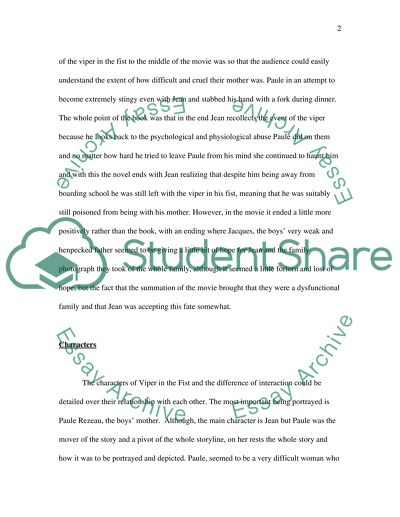Cite this document
(“Vipere au Poing Movie Review Example | Topics and Well Written Essays - 3000 words”, n.d.)
Retrieved from https://studentshare.org/literature/1513680-vipere-au-poing
Retrieved from https://studentshare.org/literature/1513680-vipere-au-poing
(Vipere Au Poing Movie Review Example | Topics and Well Written Essays - 3000 Words)
https://studentshare.org/literature/1513680-vipere-au-poing.
https://studentshare.org/literature/1513680-vipere-au-poing.
“Vipere Au Poing Movie Review Example | Topics and Well Written Essays - 3000 Words”, n.d. https://studentshare.org/literature/1513680-vipere-au-poing.


